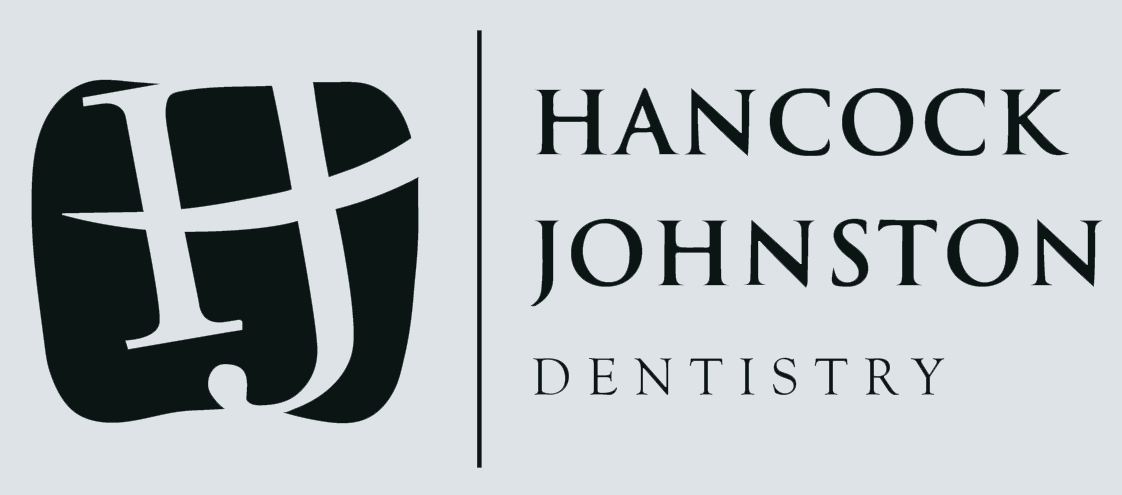Smile Makeovers for Lubbock
At Hancock and Johnston Dentistry, we firmly subscribe to the notion that no tooth be left behind, no matter how dire your situation feels. This is because we know that both your smile and overall health can be easily remedied with restorative dentistry.
As restorative dentists, we focus on repairing or replacing damaged or missing teeth to help restore oral function. In the process, we can save teeth and renew their natural look. Restoration can be as simple as a filling for a cavity or as complex as replacing missing teeth through implants.
In complex cases, we work with endodontic, prosthodontic, oral surgeons and periodontic specialists to give your mouth the multifaceted care it deserves.

Types of Restorative Dental Procedures
- Bridges — A bridge spans a space where one or more teeth have been lost in the dental arch. The teeth on either end of the span are crowned, and are referred to as abutments. The false teeth in a bridge that join the abutments are referred to as pontics.
- Dentures — Dentures are removable or fixed prosthetic teeth that replace multiple missing teeth. This solution is mostly used when someone loses all of their teeth, usually from advanced dental decay or gum disease.
- Fillings — Fillings are used to fill in a cavity, caused by dental decay. This is the most common type of tooth restoration.
- Crowns — A crown is placed on an individual tooth (somewhat like a thimble over your finger) where there is no longer sufficient tooth structure left to place a filling.
- Inlays and onlays — These custom-made solutions are used when a cavity is too large for a filling. Inlays are made of solid material that is shaped to your natural tooth, usually in the center, to cover decay or injury. Onlays are larger (but smaller than a crown) and fill a larger cavity.
- Implants — Replace missing teeth starting with a simple in-office surgery to place a titanium anchor. After the implant heals, we place a crown over the implant, resulting in a smile makeover. While an advanced procedure, implants have a high success rate and are important for overall oral health.
- Bonding — This method uses a composite resin (a plastic material) that is color matched to a patient’s teeth to correct dental problems including badly fractured or chipped teeth; cavities, small teeth and widely spaced, malformed, or badly stained teeth.
- Root canal therapy — If a cavity or crack goes deep enough into your tooth that it reaches the pulp, it can cause an infection. Restorative dentists remove the pulp, along with nerves and blood vessels. Then they fill the canals and seal the tooth to prevent further decay.
What are the Pros and Cons of Restorative Dentistry?
There are many advantages to restorative dentistry besides just improving your smile. For starters, you can improve your overall oral health and regain the ability to eat, speak and chew correctly. Fixing your dental woes can also eliminate pain and reduce your risk of developing further dental issues.
On the other hand, there are very few risks to restoring your teeth outside the sensitivity and discomfort after a procedure.
Recovery time is minimal to none on a normal filling. A patient needing dental implants may need to plan for a couple days to recover. When you consult with us, we will let you know what kind of recovery timeline to expect for your unique situation.
Restorative vs. Cosmetic Dentistry
Both cosmetic and restorative dentistry use some of the same materials, methods and result in smile improvement — however, the treatments are considered restorative when the cause is disease or trauma.
For example, placing a dental crown can restore chewing function while also making your smile more uniform.
A cosmetic procedure is deemed medically unnecessary and solely for aesthetic reasons, such as veneers or teeth whitening.
Who Needs Restorative Dentistry?
Restorative dentists treat patients of all ages, especially when there is trauma involved. Often, restorative dentistry is for adults and older people who have damaged, injured or missing teeth.
Our goal at Hancock and Johnston Dentistry, no matter the procedure, is to either create a new smile for patients or to improve your existing smile. We have been leading restorative dentists in southwest Lubbock since 1975. Our practice is happy to provide treatment to patients of all ages, restoring smiles, confidence and oral health.

